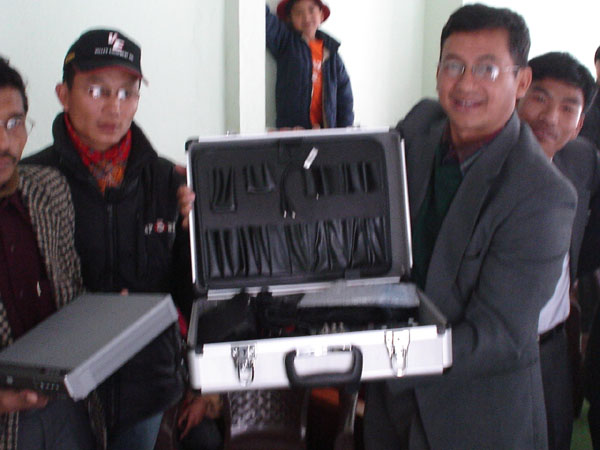By David Stahl
The Book of Esther is amazing in a number of respects. One of them is that the name of “God” is not mentioned once. At the same time the book is saturated with God. Just as the word “prayer” does not appear in the Gospel of John nor in 1st, 2nd, or 3rd John, but prayer was the heart and soul of John and his writings. This also suggests to us that even the events in our own lives may be saturated and controlled by God, even our so called troubles. When we speak of the power of divine providence which is the ability of God to make all events, whatever transpires in our lives, even the troublesome things that come our way to fulfill His purpose. In case I have made this too complicated, I am speaking of the ability of God to make all events fulfill His purpose. This is the message of the Book of Esther and the entire Bible. Another thing that is very conspicuous in Esther is namely God, as it were, hiding His face from His people. Yet, while He hides His face, He is still interested in them, and works in the shadows of events, unseen, unrecognized, but ever working on behalf of His people as the unseen God. This is also true for us. Many times shadows flip over our lives like a cloud and yet God is in those very shadows still at work on our behalf to fulfill His purpose. In the Book of Deuteronomy Moses writes of God’s words to man, “I will surely hide My face in that day for all the evils which they shall have wrought, in that they are turned to other gods.” (Deuteronomy 31:18) God’s people had disobeyed and disregarded His laws until finally God had to hide His face, as it were, and take them into the captivity. Even in captivity God was still actively preserving His people even though all that time His face was turned away from them. Have we had times in our lives when we think God has hidden His face from us? At times even when our loyal friends seemingly have turned their back on us? Fear not God has not turned His back or hidden His face from us we just cannot see or feel (we must not walk by feelings) Him at times. Now our friends (especially our Christian friends) will (when things do not go their way, fit their agenda, or get offended) turn their backs on us, but God never. I have seen it time and time again and I have felt the pain and anguish in my soul, you would think I would be use to it, but no I guess I am an eternal optimist and often confuse the word friend (maybe because I am hoping) when in reality I am just an acquaintance. Consider Zechariah. He was born in the Babylonian captivity. His name means, “Our God Remembers.” Apparently Zechariah’s parents kept their faith during the Babylonian captivity while the vast majority of the people were satisfied in Babylon. They adjusted to its culture. They did not want and did not return to Jerusalem at the end of the captivity. Most of them stayed in Babylon, save Zechariah’s parents, who kept their faith. The parents of Zechariah named their boy, “Our God Remembers.” This was true because God did remember His people in the captivity. He raised up prophets like Jeremiah, Ezekiel, and a deliverer in Cyrus. Though His face, as it were, looked away from them still He was working and at work with His hands on their behalf. In other words God was standing in the shadows unnoticed, unseen, yet still at work on behalf of His people, so too in our lives. Did you know God employs the most ordinary means to accomplish His purpose. This is one of the great things of the Book of Esther. Have you ever noticed how the power of God is at times exercised in the most trifling, insignificant circumstances?
Let us look at Esther 1:12, “But the queen Vashti refused to come at the king’s commandment by his chamberlains: therefore was the king very wroth, and his anger burned in him.” (Esther 1:12) The king had a sense of vanity. He wanted to show his wife off. She was pretty, so he asked her to come and display herself so he could say “here is the queen,” but the queen refused. This was the work of God. What queen (or most women) would not be glad to display her attire and her beauty before thousands of princes. This would be the logical or normal thing. The unseen God in His power and providence caused the queen to refuse the invitation. She refused the command of the king to provoke the wrath of the king so a break would come between the king and the queen. Here God is using the wrath of the king to bring about the fulfillment of His purpose. God often uses wrath in the fulfilling of His purpose for our lives, oh no you do not think so then read the Bible. In Psalms we read, “Surely the wrath of man shall praise You.” (Psalms 76:10) The unseen God can even use the wrath of man to bring glory to Him. But here Ahasuerus is angry with his queen. She refused and as a consequence was deposed. This was all in the providence of God. God in the power of His providence can remove people from the highest position, if need be, to achieve His purpose. Think not the rulers of today are in power because of what they have done or did not do, but God has put them in power for His purposes as a vessel of either honor or dishonor. We can think here of King Saul, “The Lord has sought Him a man after His own heart.” (1 Samuel 13:14) And God took the kingdom from him and deposed Saul. Do you remember Judas where it says, “And his bishopric let another take?” God removes people from positions at all levels. In regards to Solomon, “I will rend the kingdom out of his hands,” (1 Kings 11:11) and the kingdom became divided. We would be amazed if we could see all that the unseen God is doing in the world when we think people are doing it. The unseen God likes using the poor and broken hearted, He likes to raise up the down trodden, how else will the meek inherit the earth? The unseen God takes those who have nothing, the despised, the rejected, the ignored, and takes them up from the dunghill and sets them among princes and kings. In 1 Samuel we see how the unseen God cares for the poor, “He raised up the poor out of the dust, and lifted up the beggar from the dunghill, to set them among princes, and to make them inherit the throne of glory: for the pillars of the earth are the Lord’s and He has set the world upon them.” (1 Samuel 2:8) while at the same time the unseen God also reaches up to the princes and kings and brings them down. As we read in the Psalms, “None can stay His hand and say, What do You? For power belongs to the Lord.” (Psalms 62:11) The unseen God is doing all of this while no one is watching. The unseen God made a way for Esther (and He will make a way for us) to be on the throne and used her as a mighty instrument. He used the king’s wrath, sleepless night, and the beautiful timing in all sorts of incidents to achieve His purpose in Esther’s life. God was stepping along on all sorts of steppingstones, small things and great things, working secretly, unknown, unseen. God placed His stones of providential circumstances, great and small, small and great, in the proper timing, and moved the little orphan girl up to the throne. This was a mighty display of the unseen God’s power of divine providence. I would assume that the object of this panorama is to give us a greater faith and confidence in the sovereignty and power of divine providence so that we would not despise small things. Big doors often swing on small and unnoticed hinges, so too the least recognized and most inconspicuous incidents in our lives contribute to God’s purpose for us and become steppingstones for God in the accomplishment of His purpose. As we consider the events in Esther we are over awed by God’s power and providence in her life, yet God loves not Esther more than us. We must be able to recognize the unseen God’s hand in the circumstances of our lives, even as it is written that we might be conformed unto the image of his Son. The Book of Esther gives us a great awe of God’s power, wisdom, and a need for our submission even during the most troublesome circumstances knowing that all things that touch our lives are stepping stones for God in the accomplishment of His purpose, however unknown that might be. We must allow the unseen God to teach us to be confident, to keep faith knowing that in all our turbulence we can be still in our heart and spirit knowing that in reality He is a seen God for all the world to see.





